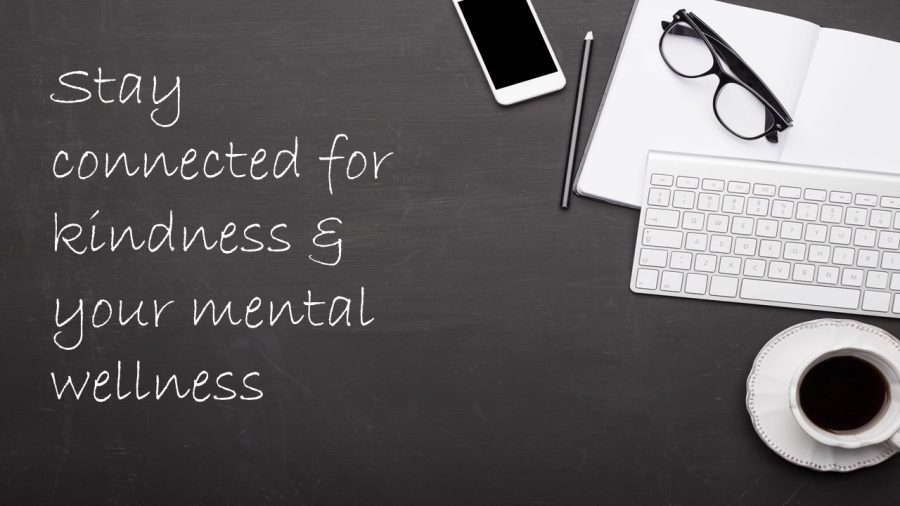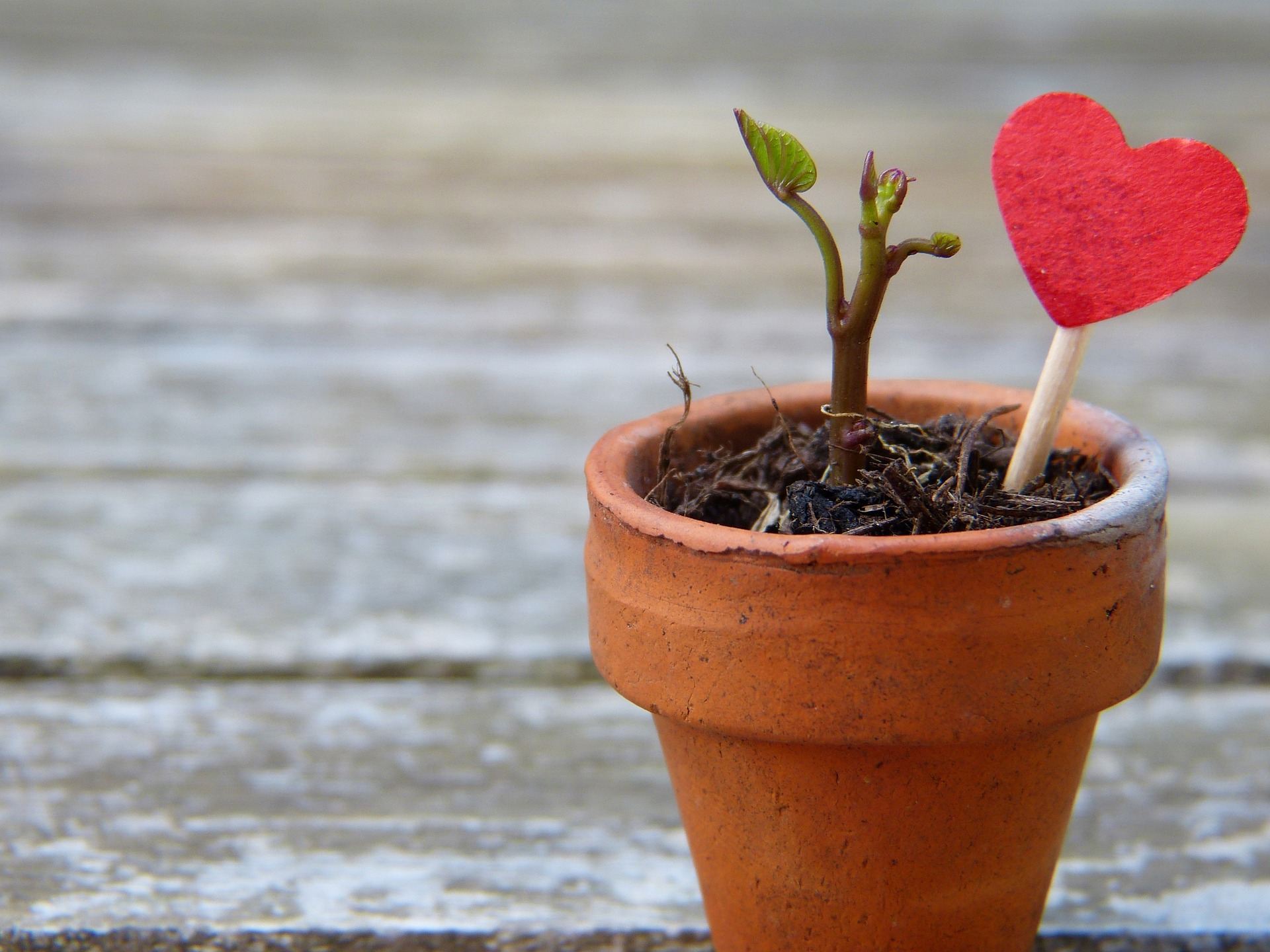Establishing a connection is essential for many reasons. Whether that connection is with yourself, others, or nature?
According to psychologists, making a connection is extremely important for our overall sense of self, our emotional and physical health. Dozen of clinical researches have shown that people are generally ‘happier’ when connected in any form of relationships.
Therefore, connecting to others, ourselves and the world give us a sense of importance and belonging. Plus, it also helps to improve our mental wellbeing and building self-esteem in communication.
As human beings are a social animal, we thrive in social connection, whether in family, groups, community or society. A strong sense of connectivity with others is vital to our mental stability and survival tendency.
Having a connection in a relationship helps us build resilience, shared interests between two or more people, shared love, support, and encouragement.
 Physiologically, people with strong ties or connections in a relationship have fewer health problems, less stressed, less depressed and improved mental wellness. Adverse to the effect, people who lack connection with themselves, others or their community have increased stress and depression, accelerated cardiovascular risks, loneliness, isolation and a higher chance of suicidal tendency.
Physiologically, people with strong ties or connections in a relationship have fewer health problems, less stressed, less depressed and improved mental wellness. Adverse to the effect, people who lack connection with themselves, others or their community have increased stress and depression, accelerated cardiovascular risks, loneliness, isolation and a higher chance of suicidal tendency.
Here are some simple ways to keep a healthy connection with the people around you to improve your mental wellness and reduce isolation and loneliness.
- Regularly reaching out and maintain a regular contact
Swallow those pride and reaching out. Reaching out means making the first move. In so doing, you make a conscious and considerable effort to contact the person. You do so regularly while maintaining a healthy boundary within the relationship. It also means having a sense of how often you should reach out, unobtrusively. If it seems like you are the one doing all the reaching out at the majority of times, try to stay positive. You are reaching out to promote your sense of wellness by showing someone that you care. It is not a chore.
- Plan a get-together
Make plans for a get-together or planning ahead is a great way to have something to look forward to. Planning ahead for an event gives us joyful feelings as our mind is excited by the future-focused possibility. The anticipation of the upcoming event encourages hope and optimism. These positive thoughts promote healthy mindset and reduce stress and anxieties.
- Say that you care by showing gratitude
We love to hear positive feedback and words of affirmation. Say that you care, say that love someone makes a massive difference to the person receiving the kind words. Showing gratitude for the relationship by expressing kind words of affirmation. Say thank you is music to the ears. Be the first to say sorry for a small measure of differences or disagreements, without compromising your sense of self. Say you like about the person. Say what think is great about being in the relationship with them. Say that you appreciate their time, and talking to you is soothing to the soul.
- Have a respectable boundary – give them space
Having a reasonable boundary for yourself and others is extremely important within any social interaction. Establish what you think is an appropriate boundary for you, and then check with the other person, what is a safe and comfortable boundary for them. A boundary is a two-way thing. It is not something that you can guess. It is safer to ask. It shows that you consider their needs. Then, act on it and put in practise by giving the person the space that they need.
- Use a medium that is most comfortable for both of you
We may take for granted what is the best medium for us, but, it may not be the best medium of contact for the other person. Check what is their preference, whether this is via phone, Skype, Zoom, Email, SMS, Facetime, WhatsApp, Snapchat etc. Agree with each other when you first make contact, how the person wants to be connected.
- Take advantage of social media (Facebook, Instagram, Twitter, Snapchat, Tumblr etc.)
Sometimes, social media is the best method to stay connected with someone distant. Take advantage of the social media application that you both preferred and keep the channel of communication open this way is another great way to stay in touch with multiple people, family, friends and the community. The interactions with social media is a great way to make special announcements or reaching out to a group of people for a response.
However, you decide to stay connected with the essential people around you, think about the good that you are doing in staying in touch. It shows that you care. And when we do something nice for others, even the smallest of thing such as staying connected to the person makes a huge difference to both your mental wellness and physical health.
Think of the joy in giving and enjoy.




 How well do you trust depends upon many factors. It is something that you learn, nurture and develop. It forms a set of behaviours and personality traits. It is also a belief with you hold as values and it determined your interaction with an individual. It is a sense of security within the relationship or process. It is dynamic and engaging. It is both benevolence and integral to all relationship within oneself, with others and with the world. If you have trust in yourself, in another and in the world, predictably, there will be cognizant.
How well do you trust depends upon many factors. It is something that you learn, nurture and develop. It forms a set of behaviours and personality traits. It is also a belief with you hold as values and it determined your interaction with an individual. It is a sense of security within the relationship or process. It is dynamic and engaging. It is both benevolence and integral to all relationship within oneself, with others and with the world. If you have trust in yourself, in another and in the world, predictably, there will be cognizant.
 1. A good enough reasoning.
1. A good enough reasoning. 2. Soothing sounds of the opposite.
2. Soothing sounds of the opposite. 3. Rebelling against helplessness.
3. Rebelling against helplessness.  4. Rethink the mundane.
4. Rethink the mundane. 5. Lack of motivation by attachment.
5. Lack of motivation by attachment.
 Tip: Check out the wellness tracker. It’s a simple but powerful tool designed to help you remember the promises you make to yourself. As you complete wellness activities your tree will blossom, and so will you!
Tip: Check out the wellness tracker. It’s a simple but powerful tool designed to help you remember the promises you make to yourself. As you complete wellness activities your tree will blossom, and so will you!